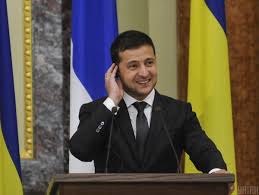
Nova Poshta group of companies plans to invest $100 million in infrastructure development in 2020, co-owner of the company Volodymyr Popereshniuk wrote on his Facebook page. “We plan $100 million investment in the development of Nova Poshta for 2020. For us, this is an unprecedented amount, but we need to start sometime. I already said that Nova Poshta had not yet developed, but only trained. Now we are starting!” he declared.
This year, the company plans to launch the second phase of Kyiv Innovation Center, increasing the capacity to 50,000 parcels per hour (with a prospect of up to 60,000).
It is also planned to build four large innovation centers with an automated sorting system in Brovary, Dnipro, Odesa, and Kharkiv.
“The capacity of each will be up to 20,000 parcels per hour. We will also build, update and equip dozens of other terminals in Ukrainian cities with modern equipment,” he said.
In addition, Nova Poshta plans to build the first cargo terminal with a robotic system for sorting pallets and bulky goods, to modernize branches and introduce new equipment to increase the speed of customer service.
“We plan to purchase scooters, pickups, minibuses and intercity containers,” the co-owner of the company said.
According to him, most of the investment will be used for information technology and the development of mobile services.

The law amending the law on automobile roads regarding the audit of road safety will open access to better financing of road construction by international financial institution (IFIs) for Ukraine, Senior Sector Engineer of the European Investment Bank (EIB) Per Mathiasen said at a press conference devoted to the results of the EIB Implementation Support to the Ukraine Urban Road Safety Project in Kyiv on Tuesday.
The European Investment Bank, the World Bank, the European Bank for Reconstruction and Development, all of them stress the importance of road safety, he said.
Mathiasen said that Ukraine needed to change the construction of roads for the safety of road users.
The new law will ensure that safety will become an integral part of the design and planning of new roads, he said.
In addition, according to Mathiasen, the law will make new roads safe and accessible for everyone: cars, cyclists and public transport.
In turn, Deputy Infrastructure Minister of Ukraine Natalia Forsiuk recalled that the government has set two key goals in the field of road infrastructure: “reducing travel time by 10% and reducing the number of traffic accidents by 30%.”
“That is, traffic safety is the only immediate priority of the government [in this area],” she said.
The main priority of the EIB Implementation Support to the Ukraine Urban Road Safety Project, which is funded by the Eastern Partnership Technical Assistance Trust Fund and implemented by Egis Ukraine, is the development of the law of Ukraine on automobile roads regarding the audit of road safety, preparation of technical documentation and boosting the capacity necessary to implement the road infrastructure safety management procedures and to promote the adoption of the law and its enforcement.
In order to implement this project, on October 17, 2019, the Verkhovna Rada of Ukraine adopted the law amending certain legislative acts of Ukraine on road safety management. The law contains most of the provisions of EU Directive 2008/96/EC on road infrastructure safety management, which is a version of the EU law on road infrastructure safety management procedures.
As reported, acting head of the State Automobile Roads Authority of Ukraine (Ukravtodor) Slawomir Nowak said that EBRD and EIB are ready to provide Ukraine with a targeted loan in the amount of EUR 900 million for the development of the road industry in 2020.
The level of road accidents in Ukraine is much higher than in EU countries.

Mass investment of the public in government and other securities in Ukraine would be possible only in two or three years after building the required market infrastructure, CEO of Freedom Holding Timur Turlov has said, based on the experience of operation in Kazakhstan. “In the next two to three years, we will be focused on building our infrastructure, so that we now have hundreds of thousands of people who will invest in government securities,” he said at the Expert Talk meeting organized by the European Business Association (EBA) on Wednesday.
Turlov expressed the hope that over this period, investors will accumulate experience and confidence in the securities market, and they will increase interest in risks. In his opinion, this will make it possible to bring not only domestic government loan bonds to the market, but also other more risky, but also more profitable tools.
“For the development of the market, big initiative and sufficiently long and significant investments of market players are important for the appearance of infrastructure,” Turlov said. He added that investing in investor education and financial literacy is also needed.
Based on the positive experience of entering the securities market in Kazakhstan, he said that such a retail business could cost billions of U.S. dollars in the next five or seven years, but a long planning horizon is required to build it.
Freedom Holding Corporation is an international financial holding company registered in Nevada (the United States), which shares will start trading on October 15 at NASDAQ.

President of Ukraine Volodymyr Zelensky has called on international business to invest in Ukraine and presented a number of promising projects.
“We have a number of projects to which I, under my personal guarantees, the guarantees of protection, invite foreign businesses. These are energy, infrastructure, transparent land circulation,” he said at the 16th Annual Meeting of the Yalta European Strategy (YES) in Kyiv.
In particular, Zelensky presented a project on land irrigation in the southern regions of the country, an inter-university IT cluster in Kharkiv, a film production center in Kyiv, a new resort on the Black Sea coast in a completely new city, ski resorts in Slavske and Borzhava, the development of Khortytsia island, a large-scale entertainment park for guests from Eastern and Central Europe.
“This is not a complete list of reasons why we invite you to invest in Ukraine,” the president added.
ENERGY, INFRASTRUCTURE, INVEST, PRESIDENT OF UKRAINE, TOURISM

Ukrainian President Volodymyr Zelensky told about plans to invest at least $20 billion in infrastructure of Ukraine at the Ukrainian-Turkish business forum in Istanbul on Thursday. He also said that in the next five years, the Ukrainian economy will grow by 5-7% annually.
“Over this time, we will invest at least $20 billion in our infrastructure to repair our 24,000 km of roads, to increase the number of operating airports to 15, to develop 5 seaports, to substantially increase their capacity, to triple the capacity of our military-industrial complex,” the president said.
He also said that during this period the country will pay much attention to the development of a high-quality telecommunications sector and promised to support the lifecell mobile communications operator (the subsidiary of Turkey’s Turkcell).
“We will conduct large-scale privatization and sell hundreds of interesting objects to effective investors, create normal competitive rules in the energy markets and simplify the rules of doing business removing restrictions in the areas of labor relations and capital flow,” Zelensky said.

During a working visit to Chernivtsi region Ukrainian Infrastructure Minister Volodymyr Omelyan examined a bridge in the village of Roztoky of Putyla district, the press service of the Infrastructure Ministry has reported.
“In 2008, as a result of flooding, roads and bridges of Chernivtsi region were significantly damaged… In the continuation of the construction of a bridge in the village of Roztoky, UAH 75 million were provided. UAH 100 million will be sent this year for the bridge over the Prut River. These are real steps of restoring the infrastructure of Ukraine. I thank the President of Ukraine, who identified the infrastructure as a key priority, as well as the governments of [Arseniy] Yatsenyuk and [Volodymyr] Groysman, which make it possible to gradually change the road network, repair bridges and give people new quality of travelling Ukraine,” the ministry said on the official page in the Facebook network on Sunday night.
Total subventions from the Road Fund for local roads in 2019 will be about UAH 15 billion.
“This is a large amount of financing, which has never happened before. All these funds should be used to restore roads and bridges in the regions, 20% of the funds can be spent on public roads. But for great effect, I urge local authorities to co-finance road repairs,” Omelyan said.